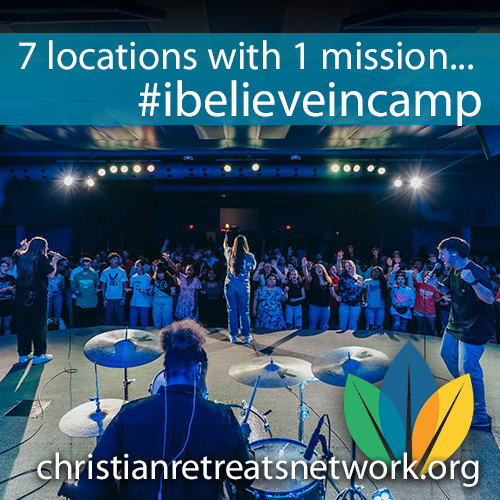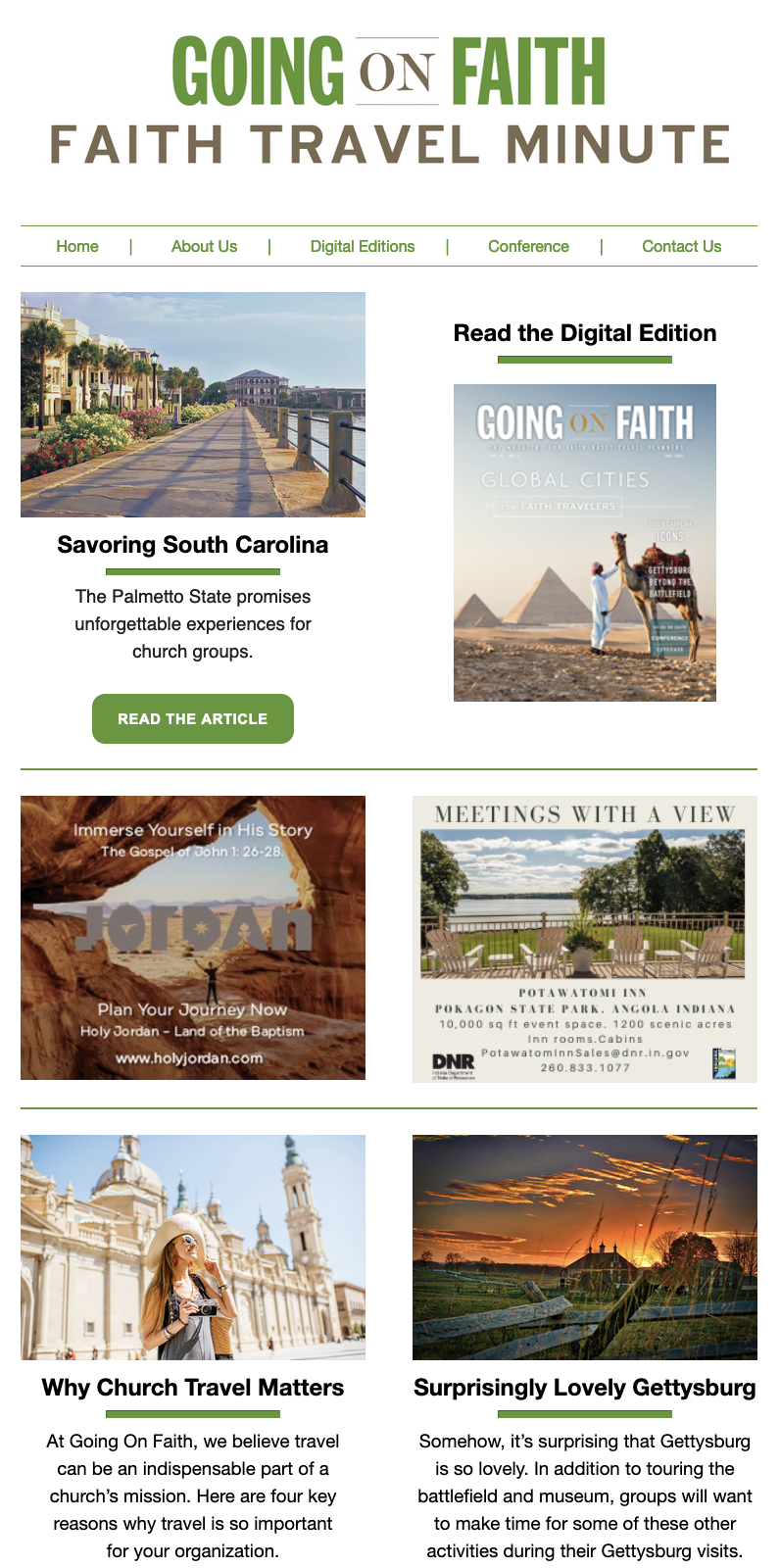
It’s been an exciting decade or so for members of the faith-based travel community. Recent years have seen an explosive growth in religious tourism, with new consumers and companies getting involved in this segment of the travel industry. But these events have also coincided with a decade that has brought its share of economic and geopolitical challenges to tourism in general. So how is faith-based travel faring?
We asked tour operators, attractions and destinations to tell us about the traffic and trends that they have seen developing and what they expect for the coming year. Their answers point to a market that has matured considerably and weathered recent economic storms but might also be experiencing some overcrowding. To stand out in the future, faith-based travel providers are looking for ways to appeal to younger travelers and give groups individualized experiences.
A resilient market
Since the subprime mortgage bust of 2008 sent the international economy into a freefall, many tour operators and travel companies have seen their sales weakening since 2009. Faith-based travel, however, seems to have withstood the downturn much better than the general market.
“I think that in general, the faith-based sector is more resilient than other market niches,” said Edita Krunic, owner of Select International Tours. “When people travel, they must have a strong personal reason to travel. Faith-based travelers are very motivated and inspired by their faith. So they’re more resilient and less susceptible to economic factors.”
For many faith-based tour operators, the Oberammergau Passion Play made 2010 a watershed year. Globus’ religious tourism division had a banner year in 2010 in spite of the general economy but slowed down some this year.
“Everyone went so big in 2010 in Oberammergau,” said Mike Schields, Globus’ managing director of groups and emerging markets. “There’s a hangover effect that has been going on. I’m seeing 2012 being a little flat or slightly better than 2011, but not approaching 2010 levels.”
Operators offering tours to the Holy Land and other biblical destinations in the Middle East are also just beginning to see the fallout from political unrest in Egypt and other counties, collectively known as the “Arab Spring.” But the number of faith travel destinations in the region has provided alternatives for travelers wanting to avoid unstable countries.
“The Arab Spring has affected our business to Egypt, where most of our groups this year canceled,” Krunic said. “But it hasn’t affected our business to the Holy Land or Jordan. In fact, we had our best year ever for the Holy Land, and 2012 promises to be even better than 2011. But I think it will take at least two years before people feel completely safe in Egypt.”
Faith-based attractions in the United States have seen some softening with the economy but report a continued interest from church groups. Sight and Sound, a Christian theater company with locations in Branson, Missouri, and Lancaster, Pennsylvania, saw strong inquiries from religious groups in recent years.
“There’s been an increase in desire for faith-based travel,” said Maria-Jose Tennison, director of marketing for Sight and Sound. “There’s the economic impact that everyone is going through. But there’s still a strong desire for people to enjoy faith-based entertainment.”
Standing out in a crowded market
While interest in faith-based travel remains high, both Schields and Krunic indicated that it may not be keeping pace with the number of players that have entered the religious tourism market. Interest in faith tourism began to uptick in 2006 and 2007, and many tour operators have now entered what was perceived as a hot new market.
“I think a lot of companies got on the bandwagon, but this market isn’t just a place where you can open the door and all the business will just come in,” Schields said. “It’s something you have to commit to, kind of like religion. A lot of people entered the space, but the space didn’t grow that fast.”
“Interest is increasing, but a lot more companies are now selling faith travel,” Krunic said. “So the competition is increasing along with the interest, and the pie hasn’t increased proportionately with the number of players. There are a lot of companies coming in that traditionally were never involved in the faith-based market, but they perceive it to be profitable.”
To continue to grow and set themselves apart in a market that has become crowded, destinations and attractions have been looking for ways to expand their product offerings and tailor them to the interests of contemporary faith travelers. In many cases, that means a trip might look very different than a traditional religious pilgrimage.
“People are looking for life-changing experiences through vacation, not just the basic place-based travel,” said Tasoula Manaridis, North American director for the Cyprus Tourism Organization. “They want to do faith-based volunteer programs and incorporate things like themed cruises, retreats and religious conferences. They’re trying to combine spiritual enrichment with some sort of relaxing or exciting vacation.”
As a result, Cyprus is working with tour operators to create travel packages that include volunteer work in orphanages and other nonprofits. The organization is also marketing its beach resorts and spa destinations alongside traditional attractions and biblical sites, hoping to catch the attention of younger and more diverse travelers.
Sight and Sound is also tweaking its offerings to attract a wider demographic of travelers.
“We have pulled primarily a 55-plus demographic, but we want to go after women 35 to 54,” Tennison said. “So we’re gearing ourselves to be more interactive and experiential. We’re making our shows more interactive and contemporary, and defining ourselves as more of a theater-based attraction. We’re looking at streaming media and a whole shift in the way we portray our brand and our marketing.”
If faith-based travel providers can broaden their demographic appeal and continue to create product that is more compelling than the economic cycle, faith tourism’s brightest days may still be on the horizon.










